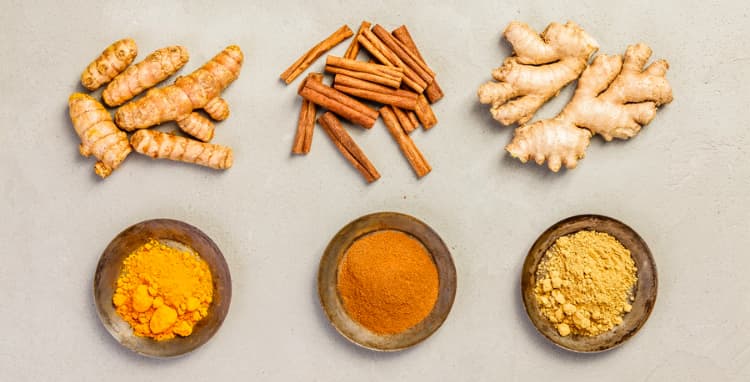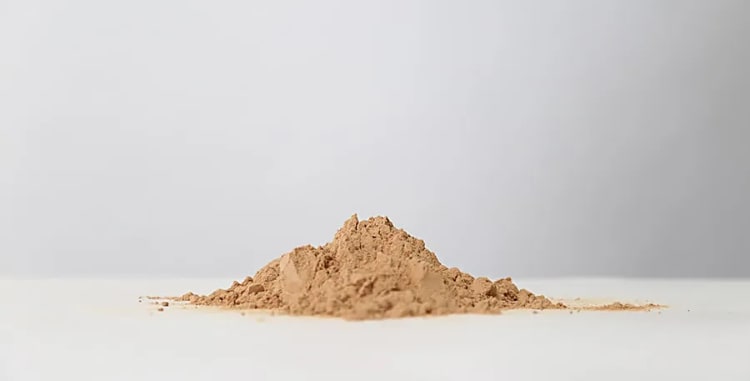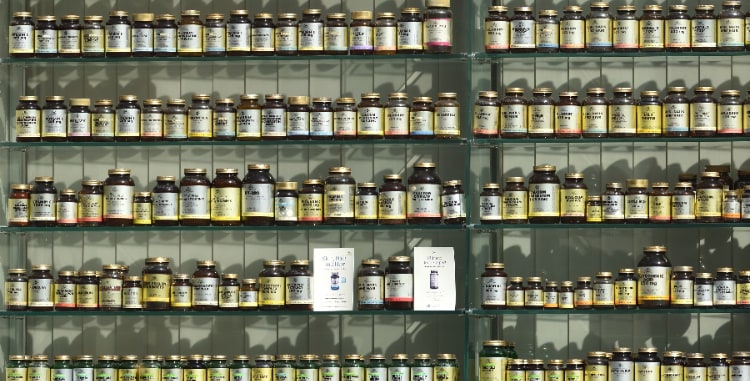“V” loves adding turmeric and ginger to her protein smoothies, which she always has about 30 minutes after breaking her fast with Organic Green Drink. Ginger and turmeric are powerful anti-viral, anti-fungal and anti-inflammation fighters. But did you know that they’re also great for your gut microbiome? Here’s how…
If there’s one easy thing you can do to support your health starting now, it’s the simple act of sprinkling ginger and turmeric into your Green Drink or plant-based protein smoothie. But the catch is that unlike candy-tasting cinnamon, both ginger and turmeric have a very strong earthy and pungent taste.
One way to get both of these incredibly healthy spices is to follow my recipe for Golden Milk, a frothy, delicious blend of almond milk (or any plant-based milk), cinnamon (another healthy spice) and coconut sugar. Yum. You’re going to absolutely love it. And thanks to the cinnamon and coconut sugar, you won’t notice the sharp taste of ginger and turmeric.
Over time, you’ll probably learn to love the taste of ginger and turmeric without needing to sweeten it. And if you want to love your gut and have your gut love you back, there are several reasons why you should consume ginger and turmeric daily. In fact, they are 2 of the 6 spices that I frequently use not only to spice up my healthy meals but also to prevent belly bloating.
Ginger for Gut Health
Everybody knows that ginger helps with nausea. So it’s great to take some ginger chews with you before you go on an airplane, roller coaster, whale watching tour, or anything else that can make your stomach queasy. And if you’re a sushi lover like I am, you know how ginger pleasantly cleanses the palate between each roll.
But here’s why I use ginger practically every day to support my gut health. You see, not only does it prevent nausea, this study shows that it pretty much helps resolve every gastric discomfort like bloating, reflux, indigestion and constipation. It’s also been shown to help prevent gastric ulcers (although only in animal studies so far).
A little bit of ginger can also help prevent vomiting during pregnancy. Another way that ginger helps with gut health is by actually changing the composition of the gut microbiome, according to this study.
In other words, this spice has the power to introduce more friendly bacteria in the gut and reduce the number of potentially-harmful bacteria. So in a way, it’s like a food-based probiotic.
And wait, there’s more to ginger for gut health. If you’re someone who gets a bad case of gas every now and then, a study in Food Science & Nutrition says ginger can help as well as resolve belly cramping.
Want to boost your digestion? Then definitely start taking ginger on a regular basis. Research shows that it helps activate your body’s own digestive enzymes, making it easier for you to digest protein and fat.
I’ll leave you with one more possible ginger benefit for gut health. Many people who have taken lots of over-the-counter pain pills have really bad gut health. These OTC pills just destroy the gut microbiome. The good news is that spices like ginger have been shown to repair the damage to the gut lining. That’s sweet … even if ginger isn’t.
Turmeric For Digestion
Now let’s look at the power of turmeric to improve your gut. Turmeric’s gut-healing potential is mostly because of the compound curcumin.
OK, so like ginger, curcumin has been shown in research to act like a natural probiotic, helping the good guys in your gut flourish while killing off the bad dudes. In fact, in one study, turmeric/curcumin was shown to destroy 36 species of harmful bacteria in the gut.
Not only that, turmeric was shown to help with leaky gut by supporting the intestinal barrier. That barrier is everything because without a strong barrier, undigested food particles, viruses, toxins and bacteria will leak into your blood.
That’s bad news because then your own immune system will recognize those things and say, “Hey, that’s not supposed to be here,” and then it will tell chemicals in your body to activate so that it can mount a defense against them. This is what causes inflammation. And if you don’t repair your gut barrier, the inflammation will be chronic.
So turmeric is like an anti-inflammatory ingredient for your gut. Many people take curcumin supplements for the joints. But relatively few people realize just how powerful turmeric/curcumin can be for preventing inflammation in the gut and repairing the gut barrier.
Does Turmeric have Side Effects?
There is no concrete evidence of any side effects to eating or drinking turmeric.
Anecdotally speaking, some people new to turmeric have reported small amounts of indigestion after consuming large amounts of the ingredient. However, this is often a reported side effect of many new spices and ingredients and may just be a sign of your body getting used to it.
Perhaps the most preposterous myth about turmeric is that it causes pregnant women to go into labor early. There is zero evidence of this. In fact, pregnant women may very well benefit from including more turmeric in their diet.
Turmeric And Ginger Supplments
If you can’t stomach the taste of fresh turmeric or ginger, I encourage you to get them in supplement form. They are definitely among the two most healing natural ingredients I use every day.
But if you create some of my smoothie recipes that feature turmeric and ginger, there’s a great chance you’ll love the taste of these two amazing gut-healing spices.


















